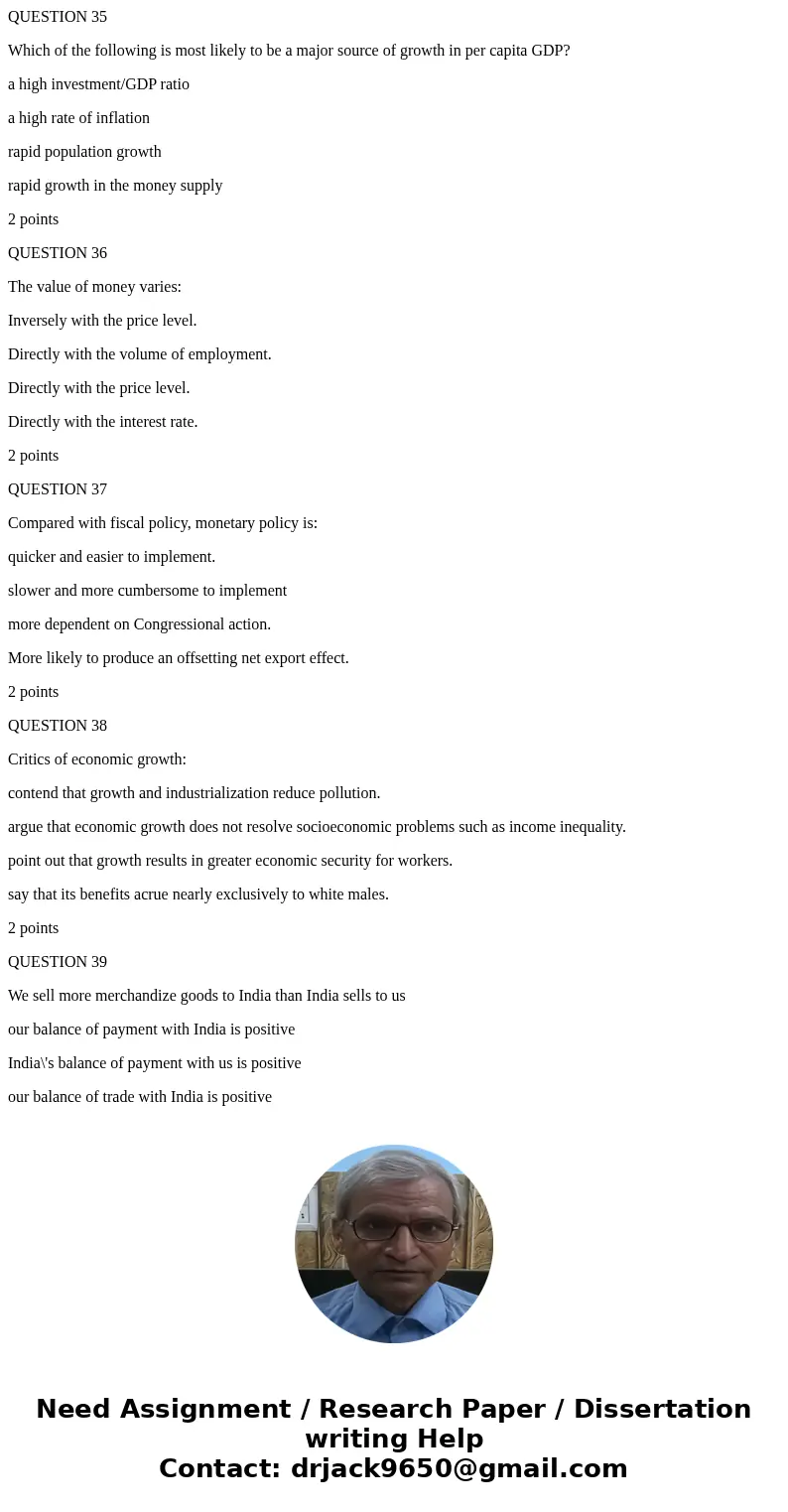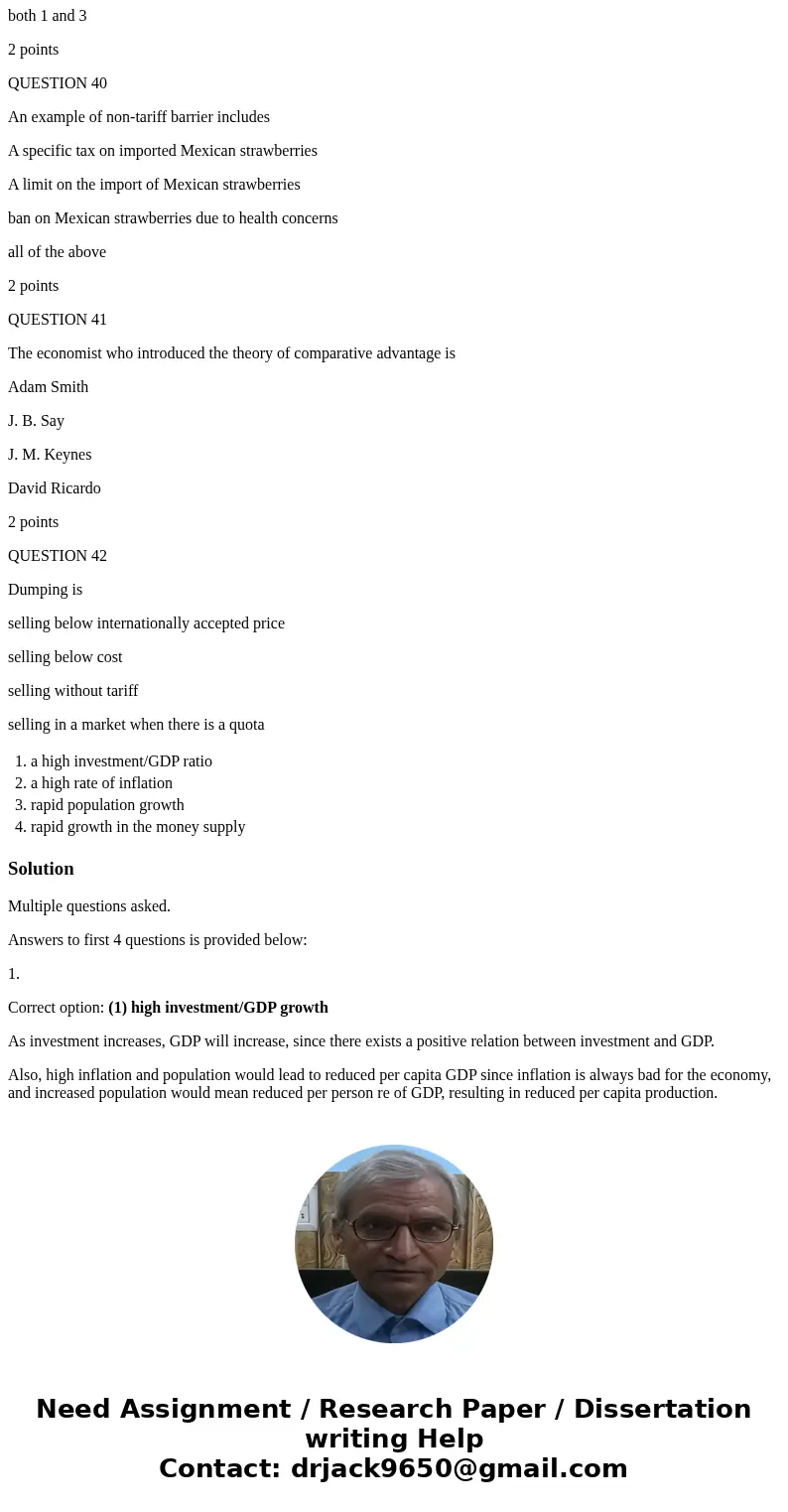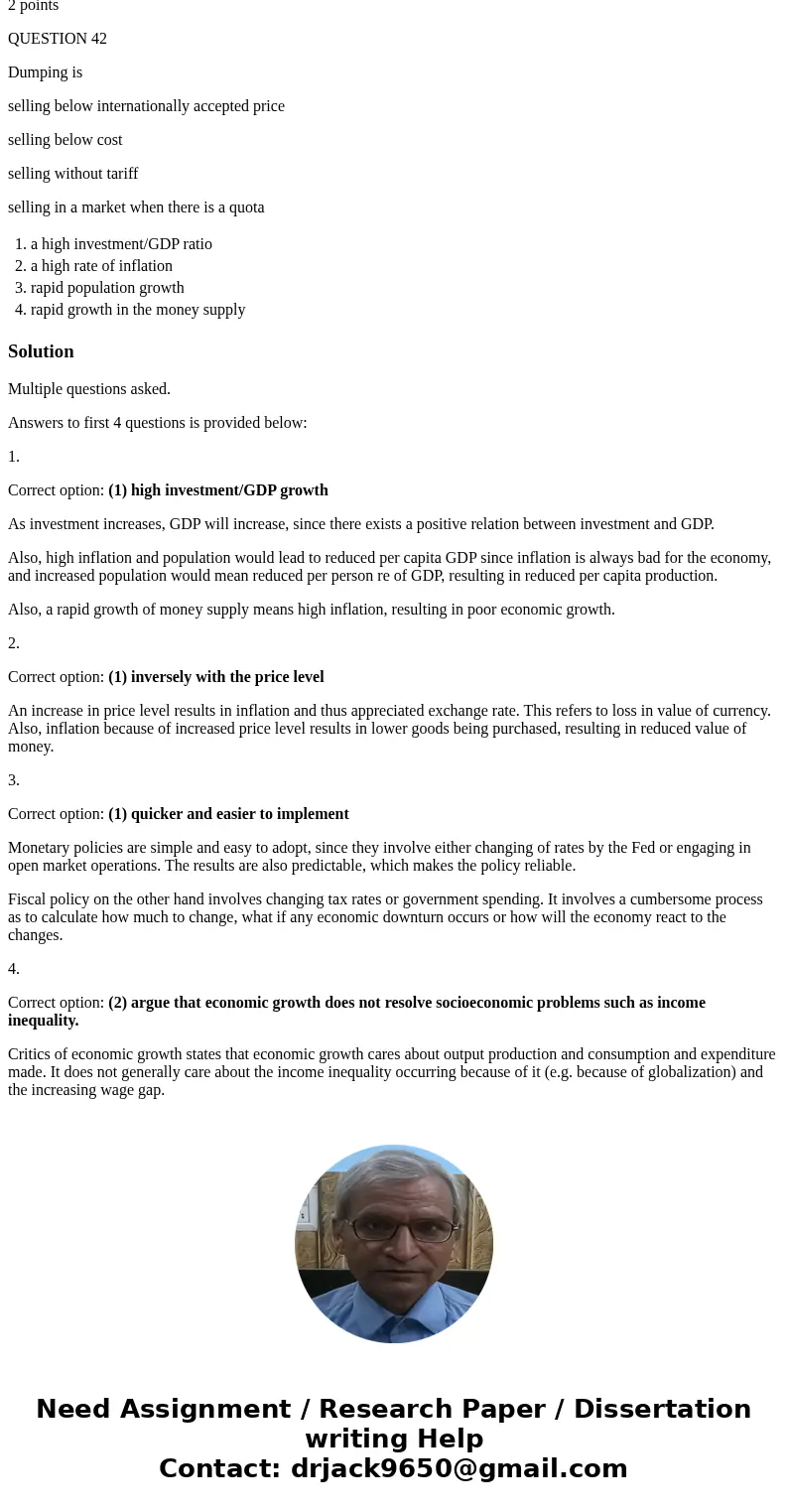QUESTION 35 Which of the following is most likely to be a ma
QUESTION 35
Which of the following is most likely to be a major source of growth in per capita GDP?
a high investment/GDP ratio
a high rate of inflation
rapid population growth
rapid growth in the money supply
2 points
QUESTION 36
The value of money varies:
Inversely with the price level.
Directly with the volume of employment.
Directly with the price level.
Directly with the interest rate.
2 points
QUESTION 37
Compared with fiscal policy, monetary policy is:
quicker and easier to implement.
slower and more cumbersome to implement
more dependent on Congressional action.
More likely to produce an offsetting net export effect.
2 points
QUESTION 38
Critics of economic growth:
contend that growth and industrialization reduce pollution.
argue that economic growth does not resolve socioeconomic problems such as income inequality.
point out that growth results in greater economic security for workers.
say that its benefits acrue nearly exclusively to white males.
2 points
QUESTION 39
We sell more merchandize goods to India than India sells to us
our balance of payment with India is positive
India\'s balance of payment with us is positive
our balance of trade with India is positive
both 1 and 3
2 points
QUESTION 40
An example of non-tariff barrier includes
A specific tax on imported Mexican strawberries
A limit on the import of Mexican strawberries
ban on Mexican strawberries due to health concerns
all of the above
2 points
QUESTION 41
The economist who introduced the theory of comparative advantage is
Adam Smith
J. B. Say
J. M. Keynes
David Ricardo
2 points
QUESTION 42
Dumping is
selling below internationally accepted price
selling below cost
selling without tariff
selling in a market when there is a quota
| 1. | a high investment/GDP ratio | |
| 2. | a high rate of inflation | |
| 3. | rapid population growth | |
| 4. | rapid growth in the money supply |
Solution
Multiple questions asked.
Answers to first 4 questions is provided below:
1.
Correct option: (1) high investment/GDP growth
As investment increases, GDP will increase, since there exists a positive relation between investment and GDP.
Also, high inflation and population would lead to reduced per capita GDP since inflation is always bad for the economy, and increased population would mean reduced per person re of GDP, resulting in reduced per capita production.
Also, a rapid growth of money supply means high inflation, resulting in poor economic growth.
2.
Correct option: (1) inversely with the price level
An increase in price level results in inflation and thus appreciated exchange rate. This refers to loss in value of currency. Also, inflation because of increased price level results in lower goods being purchased, resulting in reduced value of money.
3.
Correct option: (1) quicker and easier to implement
Monetary policies are simple and easy to adopt, since they involve either changing of rates by the Fed or engaging in open market operations. The results are also predictable, which makes the policy reliable.
Fiscal policy on the other hand involves changing tax rates or government spending. It involves a cumbersome process as to calculate how much to change, what if any economic downturn occurs or how will the economy react to the changes.
4.
Correct option: (2) argue that economic growth does not resolve socioeconomic problems such as income inequality.
Critics of economic growth states that economic growth cares about output production and consumption and expenditure made. It does not generally care about the income inequality occurring because of it (e.g. because of globalization) and the increasing wage gap.



 Homework Sourse
Homework Sourse